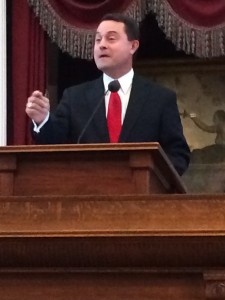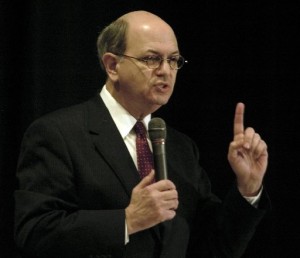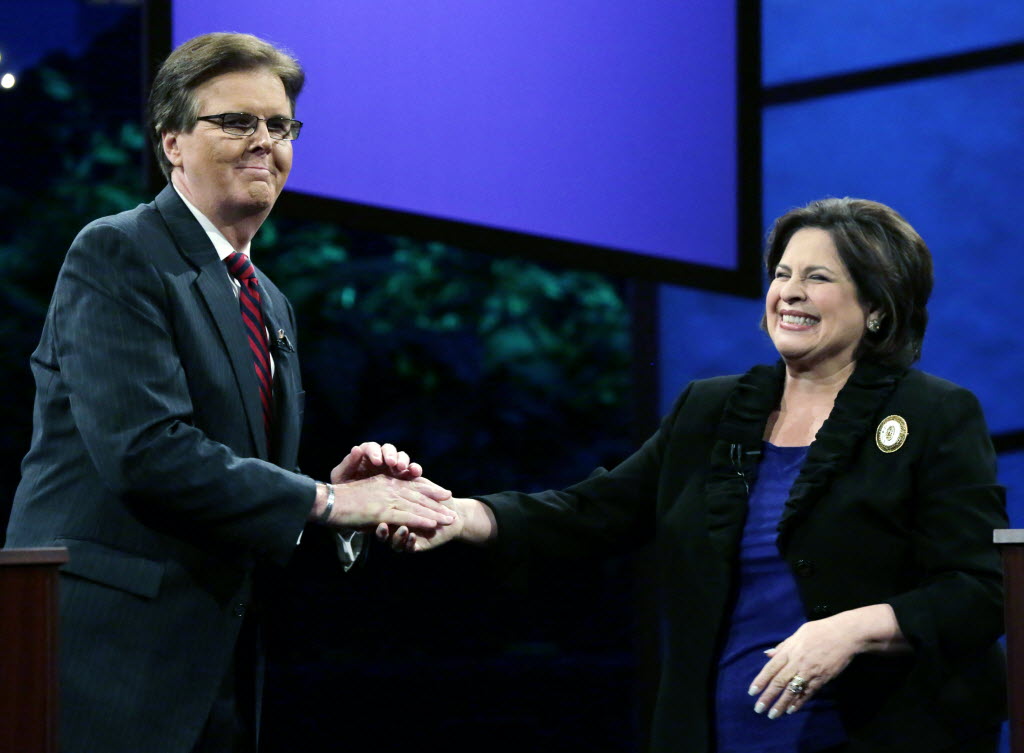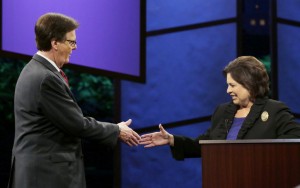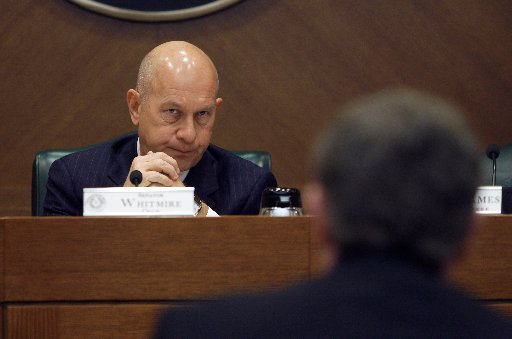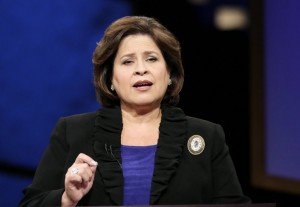
Democratic lieutenant governor nominee Leticia Van de Putte, at her televised debate with Dan Patrick last week. (AP photo/Eric Gay)
Update at 2:12 p.m.: Dan Patrick raised $4.273 million in a recent 13-week period and spent $804,000, says his campaign’s senior strategist, Allen Blakemore.
He ended the period with $4.297 million in the bank, Blakemore said.
While Patrick did not reserve TV ad time before Sept. 25, the end of the reporting period, Blakemore said the Republican lieutenant governor nominee will air ads before next month’s election.
He offered no details.
Blakemore said, jokingly, “We’ll have Dan in camouflage or something.”
So Patrick entered the home stretch with a money edge of about $2.1 million over Democrat Leticia Van de Putte. Her spokesman, Emmanuel Garcia, said in a Monday interview that she spent “upwards of $1 million” on TV ads that have been running for about a month.
Neither side is putting out their campaign-finance reports, which may not be available online at the Texas Ethics Commission’s website until Tuesday. They have to be filed by midnight Monday.
Update at 12:43 p.m.: Democratic lieutenant governor candidate Leticia Van de Putte raised more than $2.6 million in the latest reporting period, her campaign announced Monday.
Even after making “a substantial television ad buy” for her fall race against GOP rival Dan Patrick, Van de Putte closed out the period with almost $2.2 million in the bank, said spokesman Emmanuel Garcia. He has declined to say how big the ad buy was.
“Senator Van de Putte has posted another strong fundraising report,” Garcia said in a statement. More than 6,000 people contributed to her campaign between July 1 and Sept. 25, he said.
While Van de Putte has made “bold policy proposals on every major issue,” Patrick “continues to defend his reckless education cuts and hide from general election voters,” Garcia said.
Original item at 11:34 a.m.: Republican state Sen. Dan Patrick has raised at least $3.4 million for his lieutenant governor bid since July 1.
On Monday, Patrick’s campaign announced that at the end of the latest reporting period, it had $4.3 million in cash.

GOP lieutenant governor candidate Dan Patrick answers questions after televised debate with Democrat Leticia Van de Putte last Monday night. (AP Photo/The Daily Texan, Ethan Oblak)
As of June 30, after a costly but smashingly successful primary battle against incumbent Lt. Gov. David Dewhurst, Patrick’s campaign cash dwindled to $947,000.
Patrick did not release his latest report. It was due Monday at the Texas Ethics Commission and covers July 1 through Sept. 25.
He hasn’t aired TV commercials in his fall contest against Democrat Leticia Van de Putte, a fellow state senator. Unless Patrick bought time in advance, it’s likely that his spending was light in the latest reporting period.
Senior Patrick campaign strategist Allen Blakemore said in a written statement that Patrick surpassed his fundraising goal for the period. Blakemore, though, did not specify either the goal or the amount actually raised. If the overhead was virtually zero, Patrick would have added at least $3.4 million to the $947,000 he had on June 30 — and perhaps more.
“We remain on track with our plan for victory,” Patrick said in a statement.
Blakemore said that since July 1, 2013, Patrick received more than 6,000 contributions totaling more than $12 million. Of that, as much as $2 million was loans from the candidate, who co-owns two radio stations.
On June 30, Van de Putte had nearly $1.2 million in cash, after raising slightly more than $2 million in the first six months of the year.
Asked how much cash she now has, Van de Putte spokesman Emmanuel Garcia demurred.
“We will have our release coming out soon,” he said.



